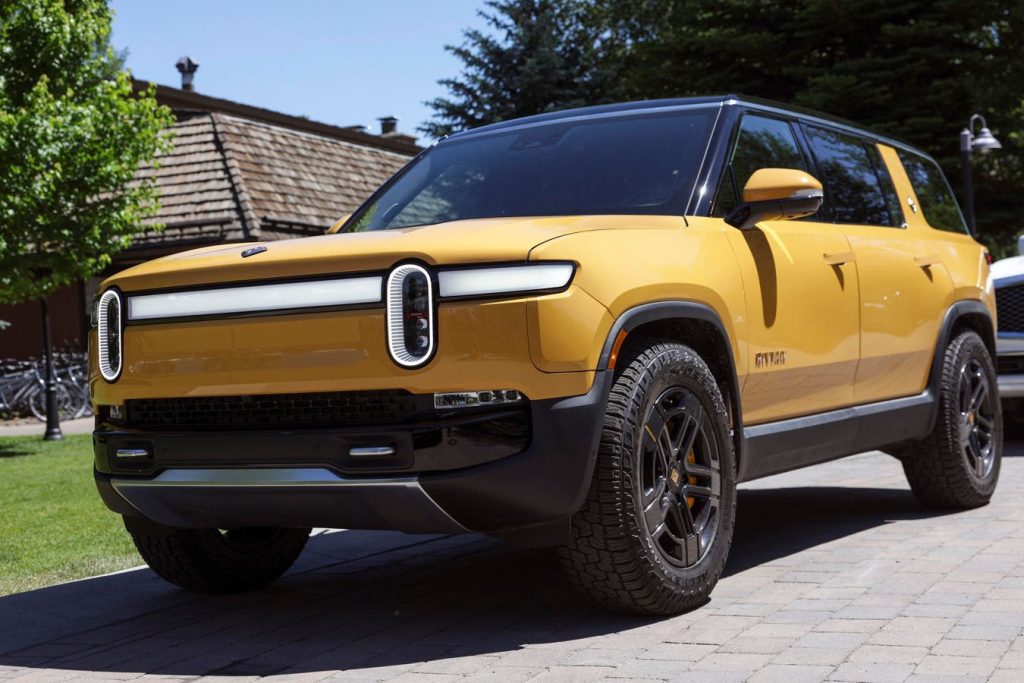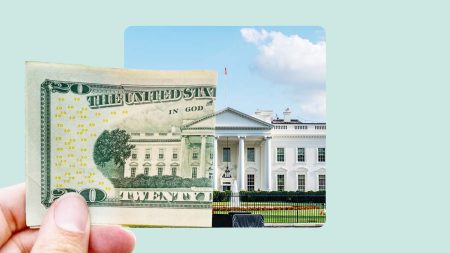Volkswagen’s plan to invest $5 billion in start-up Rivian’s electric vehicle architecture and software signals VW is planning a major positive shift in direction for its U.S. business, according to analysts.
The plan doesn’t bode well for its struggling Carian software subsidiary or its revived U.S. Scout brand. The deal also raises the question of the difficulties young, vibrant organizations have dealing with massive mature conglomerates like VW.
“It remains to be seen how well Rivian’s start-up culture and VW’s ‘supertanker’ organization might fit together,” investment bank UBS said.
VW and Rivian announced Tuesday they would set up an EV architecture and software joint venture. The companies said the investment will allow Rivian to invest in developing less expensive and smaller R2 SUVs set to hit the market in 2026.
Rivian currently sells the R1S SUV and R1T pickups. A joint venture company will license existing software for use by Rivian and VW. The R2 will be the first to use it. VW brands including Audi, Porsche, Lamborghini and Bentley will follow.
According to Reuters, Rivian has been losing nearly $40,000 for every vehicle it sold but was on a steadier footing than Fisker, which has filed for bankruptcy.
Matt Schmidt of Schmidt Automotive Research said the move suggests VW is preparing to raise its game in the U.S.
“This is a big statement about de-risking China and trying to get the U.S. house in order. This has been the stumbling block for CEO after CEO in Wolfsburg [Germany] from time immemorial, where they were quite rightly focusing on China but perhaps not so intelligently, neglecting the U.S. and putting all their eggs in just two baskets, Europe and China, rather than three,” Schmidt said.
It might be a danger signal for Scout.
“The Rivian deal could also be an accelerator for their latest attempt to break America, Scout Motors, leveraging Rivian-tech, or alternatively a nail in its coffin,” Schmidt said.
Investment bank Berenberg said in a “flash note” the deal will accelerate the development of software for Rivian and VW, “leveraging on Rivian’s proven in-market zonal hardware design and integrated technology,” Berenberg said.
Berenberg reckoned the deal would take the pressure off Cariad and complement VW’s 2023 China arrangement with XPENG.
“While XPENG is fuelling the VW ‘In China for China’ strategy, the newly announced Rivian deal will accelerate software developments for VW western geographies, U.S. and Europe,” Berenberg said.
UBS, which has a sell rating on VW shares, pointed to its past problems with software.
“Software and [electric vehicle] architecture have proven challenging for VW group over the past few years; therefore, the investment and JV with Rivian, a company that has proven specializations in this area, should be strengthening VW’s future product whilst in theory reducing development costs and risks,” UBS said in a report.
“For us, the logical consequence of the new partnership seems that VW’s own software unit Cariad needs to be right-sized to avoid double-spending. We also wonder why VW is maintaining its €5 billion investment in Scout, a revived U.S. brand that VW utilizes to build an EV-only offering in the rugged SUV segment. We would see significant potential overlap with Rivian here,” UBS said.
Schmidt said if VW can return to its glory days in the U.S., this would provide VW Group CEO Oliver Blume with an impressive record.
“If he [Blume] can succeed in the U.S. it could arguably be just as large a step as when former VW CEO Carl Hahn decided to double down on China. The name of the game going forward in the global auto industry is likely to spread your bets globally in order to help navigate choppy geopolitical headwinds. We see Blume doing this with Rivian,” Schmidt said.
Read the full article here
















